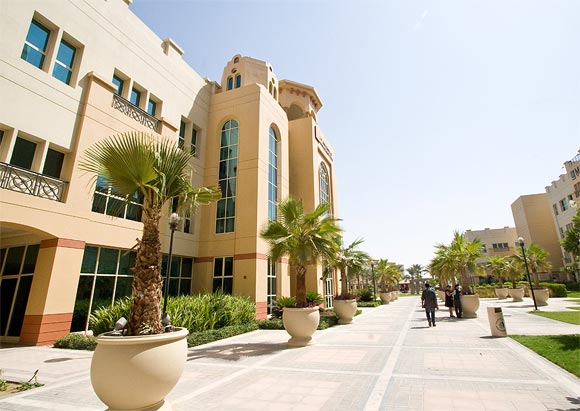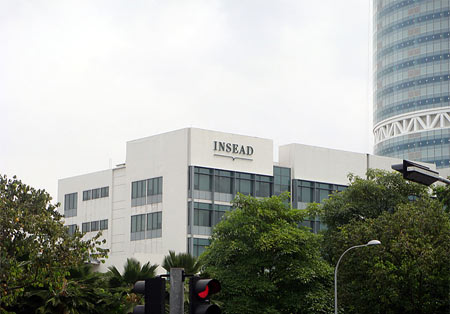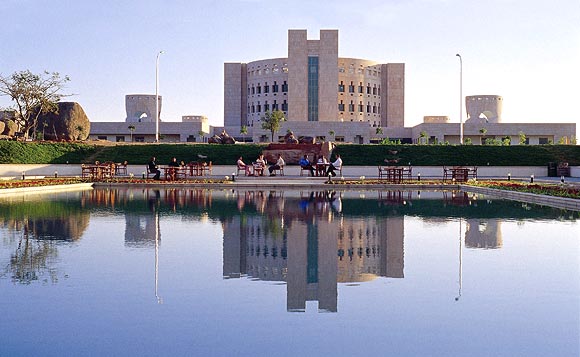 | « Back to article | Print this article |
Top 5 study abroad destinations
Forget the US and the UK, Naveenan Ramachandran and Abhishek Bhide, mentors, 4GMAT, Mumbai tell us why these nations offer the best for international MBA aspirants.
Although students have been going to the US and UK for higher studies particularly in MS and MBA, there are other countries that offer interesting options for students wishing to pursue their Masters courses in business management.
While drawing up the list of countries, we looked at the quality of colleges in the country along with other factors such as infrastructure, companies having presence in that country, economic situation, visa and immigration processes etc.
It is very crucial that all MBA aspirants do a detailed analysis of the country and business school they intend to study in to ensure whether the institute is enrolling themselves in a suitable programme according to their background or not.
Please click NEXT to continue reading...
1. Canada
The eleventh richest country in the World, Canada also has an abundance of natural resources and an economy that has both a sizeable manufacturing sector-- in oil, timber, and automobile -- as well as a developed services sector.
Due to its location, Canada exports most of its products to the US and is quite closely interconnected to the US both economically and socially.
Linguistically Canada has two official languages -- English and French, the latter is also the 'lingua franca' in some provinces.
An MBA from Canada is ideal given the advantage of location and the facilities available in the country.
Canada comparitively has a very low population density and students doing their MBA from Canada can look for job opportunities and possible relocation to this country due to its healthy economy and open immigration policy.
A number of globally known schools are located in the cities of Toronto and Montreal and are part of renowned universities with multiple disciplines.
Given its proximity to the US, it becomes easier for students to interact with companies there and also apply for internships and job opportunities while possibly facing less competition in terms of application pool.
The only possible negative is the extreme cold weather in the country during winters and the remote location of some universities.
2. Dubai
Dubai, known for its commerce and luxury is also fast becoming a hub for international b-schools.
The boom in the economy has made this a very attractive destination for professionals from around the world and it is these executives that b-schools are trying to tap on to.
Many schools from the US, Europe and even India are starting up campuses in Dubai for different reasons.
For Western countries, these campuses are a way to give their students an exposure to Asia and Arab countries whereas for Indian schools the campus serves as a global site where their students can be exposed to international companies and cultures.
In fact for a number of other Asian and African students an MBA in Dubai is a way to experience a vibrant business city while getting education from leading faculty members.
Dubai itself has created educational hubs for such universities where they can share resources such as IT services, libraries etc.
Additionally, some domestic universities have also invested in world-class campuses to ensure a quality education for its citizens.
Given the wide variety of companies present in Dubai, candidates from backgrounds as diverse as oil and gas to banking and manufacturing to IT would all benefit from a Dubai MBA.
3. Singapore
A favourite destination for tourists from India, Singapore is also a well known hub for trade, shipping and business.
A number of MNCs also have their regional headquarters in this country given its central location in context to Asia and the Australian region.
Singapore has become a desired destination for MBAs because a number of students from Asia prefer to do an MBA closer to home.
The other important reason for the popularity is the interest of non-Asian students in the Asian region due to the growth witnessed by it in the past decade.
Singapore boasts of a number of very well-known schools which include both the European and US schools which have opened campuses in Singapore as well as schools of Singapore origin.
The advantage of an MBA from Singapore is in its better value for money over the US and Europe as well as its proximity to China, India and South East Asia -- all high-growth regions.
This enables students to interact with industry during their internships and recruitment process while also gaining a better understanding of business in this region.
Students from backgrounds such as manufacturing, trading, banking and IT should particularly look at a Singapore MBA to propel their careers to the next level.
Senior professionals also should evaluate the wide variety of executive MBAs offered by schools from Singapore and the US -- with campuses in Singapore as a lot of very big names are present here.
4. China
Until about three decades ago, China was a Communist country in which the government held very close control of all businesses.
It did not make much sense to go to China to pursue an MBA, a course which has capitalism at its core.
However, things have been gradually changing over the past several decades and China's businesses have immensely benefitted by the changes in economic policies since the early 1980s.
This means that there is a sharp shift in management styles at the powerful corporations in China and MBA graduates are being sought to lead this change.
The other reason why Indians cannot ignore China as a b-school destination is because the country holds a large potential for future businesses in the world.
There are about 45 business schools in China and an overwhelming majority of those schools are in and around Shanghai and Beijing.
It should be noted that fluency in Mandarin is an absolute must for living and working in China.
Even though the language is tough to learn, there are tangible benefits in learning the language -- let us keep in mind that China is one of the fastest growing economies in the world and it makes a lot of sense to be part of the growth story.
Most of the schools use the GMAT as the entry criteria. Student visas for studying in China are not a difficult proposition.
Upon acceptance of the admission offer, the Chinese business school stamps and sends a Visa Application Permit. The student takes the application permit to the Chinese embassy and gets it processed.
5. India
Yes -- I saw your eyes pop when you saw India in this list.
Well, India is no longer a place where students do their MBA immediately after graduation. Many innovations in the MBA offerings have been built around the needs of the "experienced, working professional".
We are talking about the executive education programme varying between 12 to 18 months' duration. Some of them are part time and others are full time MBA programmes.
A little bit of history here -- CAT, XAT, SNAP, NMAT, CMAT (CET will be replaced by CMAT starting 2013) are examinations which must be taken to get into the two year programs offered by the various b-schools. These examinations (excepting for CMAT) happen only once a year and the busy working professional finds it tough to match his work schedule with the examination schedule.
Most executive education programmes have started taking the GMAT as the entry criteria which is good news for the working professional for various reasons: (a) because the GMAT allows the applicant to take the examination anytime of the year -- you can choose when your work pressure is the least, (b) s/he can take the examination multiple times in a year -- up to five attempts in a calendar year -- which is hardly a constraint, (c) the results of the GMAT are valid for five years and (d) GMAT is an absolute performance examination -- unlike the CAT or XAT which are relative performance examinations driven by percentiles.
Due to these advantages, the 30-year-old working professional does not feel left out for not being able to pursue an MBA in the first two or three years after graduation. There are at least five innovative popular variants of the executive education offering. There are courses which fit almost everyone's bill:
There are 1 year full time programmes offered by the oldest institutions in India which cater to people ONLY with more than six or seven years of experience.
This ensures that the entire classroom has a mature perspective about their professions and might have managed teams even without the b-school grounding
There are part-time programmes offered by one of the fastest growing schools which cater to people with more than 10 years of experience. It is meant for professionals who are fairly senior in their professions and may not be able to take a break of one full year.
It is a part-time programme which requires the professional to fly down to their campus for a week once every six weeks. This programme does not even require GMAT but has a rigorous application and interview process.
There are many one-year full time programmes offered by institutions for professionals with more than two years of experience.
There is a 2-year long distance programme offered by one of the oldest institutions which involves having to participate in live online lectures twice a week. This ensures that (1) the professional has access to faculty to clarify their doubts, (2) the professional is able to actually attend an e-class while continuing with her profession.
The biggest advantage is that this programme provides the candidate with an "option" on whether she wants to take up a specialisation in the second year. If the candidate does not want to, then a generalist diploma is awarded to her in the end of year 1. If she does continue with the specialisation, then she receives a specialist diploma by the end of year 2.
There is a one-year full time programme which involves having to visit three different countries and spending four months in each of them. This gives exposure to the job market in all three geographies and a much needed global perspective.
The other advantage is that most of these programmes do NOT depend only on the academic track record of the candidates.
Beyond the marks that she scored in her past, the other factors like duration of her work experience, achievements in the work place, leadership qualities displayed in various projects and impact on the revenue and profits of the firm, entrepreneurship experience are given adequate weight in the admission process.
The GMAT is taken as a signal of his/her ability to withstand the academic rigour of the compressed programme.
These innovations in the field of executive education are the reasons why we have included India as a "new" MBA destination.





